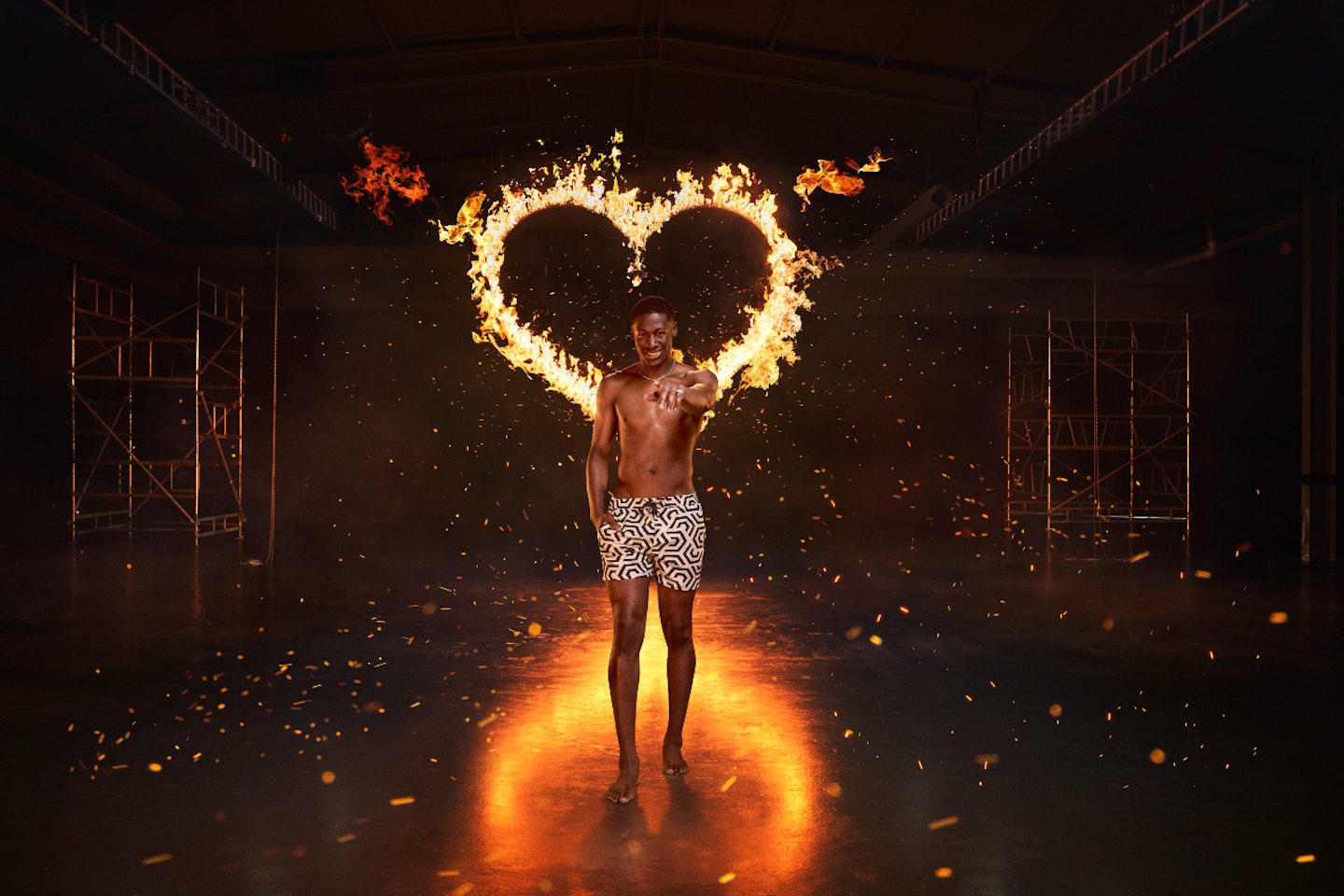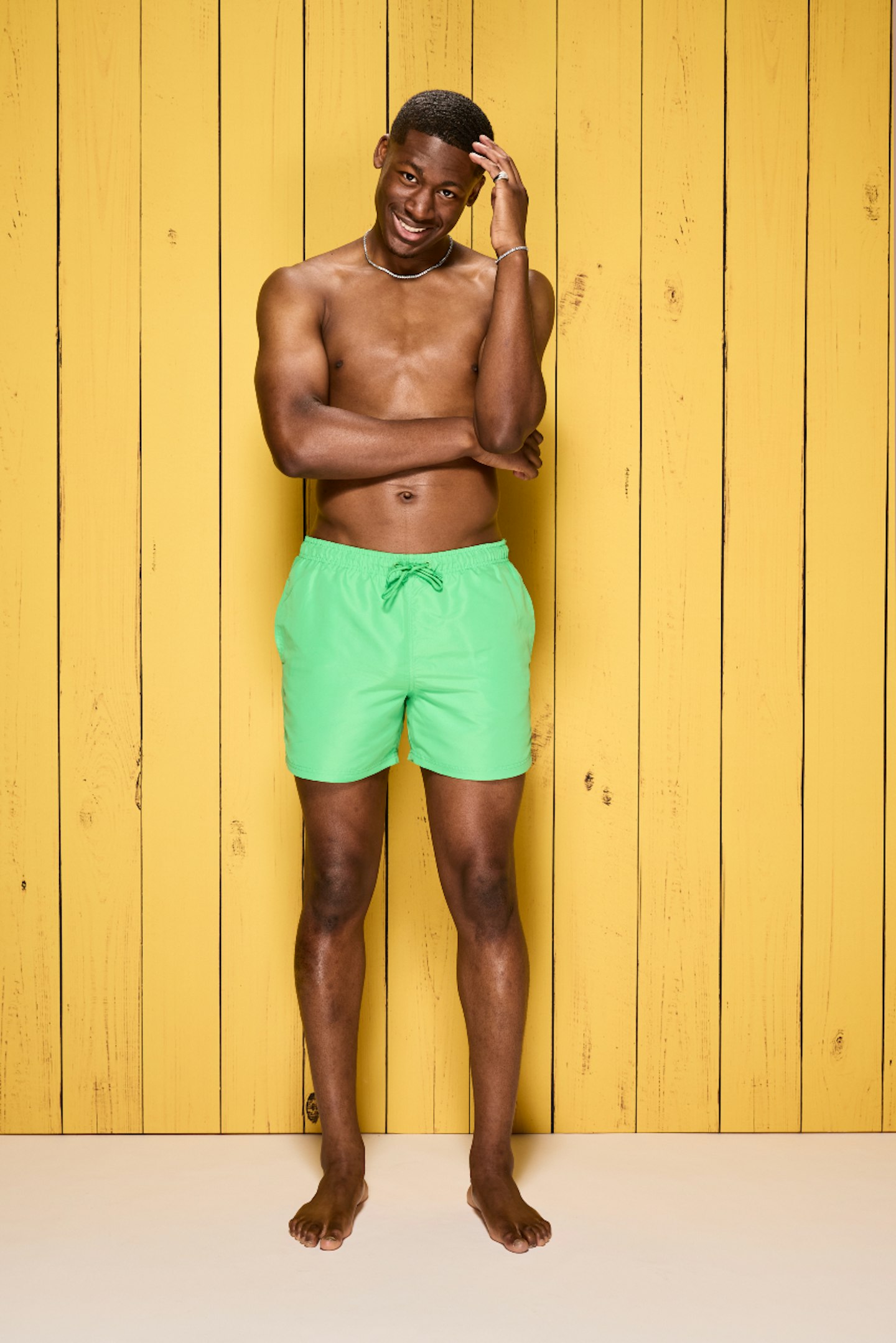Love Island has taken the world by storm, captivating audiences with its unique blend of romance, drama, and reality television. As the show continues to grow in popularity, fans are increasingly curious about the age demographics of the contestants and the factors that contribute to the show's success. In this article, we delve into the world of Love Island, exploring the age of participants, the show's influence, and much more.
Since its debut, Love Island has become a cultural phenomenon, sparking conversations about love, relationships, and modern dating. The show's appeal lies in its ability to bring together a diverse group of individuals, each with their own unique story to tell. Understanding the age range of contestants is essential to comprehending the dynamics that unfold on the island.
In this article, we will explore the age factor in Love Island, its significance, and how it shapes the narrative of the show. By the end, you'll have a deeper understanding of why age matters in the world of Love Island and how it contributes to the show's enduring popularity.
Read also:Tyler P Model The Ultimate Guide To Understanding The Rising Star In The Modeling Industry
Table of Contents
- Overview of Love Island
- Age Statistics of Contestants
- Why Age Matters in Love Island
- Diversity in Age Demographics
- The Casting Process and Age Considerations
- Impact of Age on Relationships
- Age Dynamics in Reality TV
- Criticism Surrounding Age in Love Island
- Future Direction of Age Representation
- Conclusion
Overview of Love Island
Love Island is a reality television show that originated in the UK and has since expanded to multiple countries, including the United States. The premise of the show revolves around a group of single individuals living together in a luxurious villa, tasked with forming romantic connections while being judged by their peers. The show's success lies in its ability to create an engaging narrative that resonates with viewers of all ages.
Key Features of the Show
- Contestants are placed in a villa with no outside communication.
- They must pair up to avoid being eliminated by their fellow housemates.
- The show is filled with drama, romance, and unexpected twists.
Age Statistics of Contestants
One of the most intriguing aspects of Love Island is the age range of its contestants. While the show primarily features individuals in their 20s and early 30s, there is a growing trend toward inclusivity in age representation. According to data from recent seasons, the average age of contestants falls between 24 and 28 years old. However, there have been exceptions, with some participants being slightly older or younger.
Breakdown of Age Demographics
- 18-21: Approximately 15% of contestants
- 22-25: Approximately 40% of contestants
- 26-30: Approximately 35% of contestants
- 31+: Approximately 10% of contestants
Why Age Matters in Love Island
The age of contestants plays a crucial role in shaping the dynamics of Love Island. Younger participants often bring energy and spontaneity to the show, while older contestants contribute maturity and life experience. This balance is essential for creating a diverse and engaging environment that resonates with a wide audience.
Additionally, age influences how contestants approach relationships and handle conflicts. Younger individuals may prioritize physical attraction and immediate connection, while older participants often focus on emotional compatibility and long-term potential. This diversity adds depth to the show's narrative and keeps viewers invested in the unfolding drama.
Diversity in Age Demographics
Love Island has made significant strides in promoting diversity, including age representation. By casting contestants from various age groups, the show reflects the real-world dating landscape, where individuals of all ages seek meaningful connections. This inclusivity not only enriches the show's content but also fosters a sense of relatability among viewers.
Benefits of Age Diversity
- Provides a broader perspective on love and relationships.
- Encourages conversations about ageism and societal expectations.
- Offers role models for viewers across different age groups.
The Casting Process and Age Considerations
The casting process for Love Island is meticulous and involves several stages, including auditions, interviews, and psychological assessments. Age is one of the factors considered during the selection process, as producers aim to create a balanced and representative group of contestants. While there is no strict age limit, the show tends to favor individuals who can navigate the complexities of modern dating while maintaining a level of authenticity.
Read also:Hdub4u The Ultimate Guide To Understanding And Maximizing Its Benefits
Key Criteria for Casting
- Age appropriateness for the show's target audience.
- Ability to contribute to the show's narrative and drama.
- Authenticity and relatability to viewers.
Impact of Age on Relationships
Age significantly impacts how relationships develop on Love Island. Younger contestants may struggle with impulse control and long-term commitment, while older participants often approach relationships with more caution and consideration. This dynamic creates tension and intrigue, as viewers witness the challenges and triumphs of forming connections across different age groups.
Moreover, the show highlights the importance of communication and understanding in overcoming age-related barriers. By showcasing healthy relationship practices, Love Island serves as a platform for educating viewers about the complexities of modern dating.
Age Dynamics in Reality TV
The role of age in reality television is a topic of ongoing discussion. While some shows cater exclusively to younger audiences, Love Island has successfully bridged the gap by appealing to viewers of all ages. The show's emphasis on authenticity and relatability ensures that participants of varying ages can find common ground and connect on a deeper level.
Challenges in Representing Age
- Balancing the needs of different age groups within the show.
- Addressing stereotypes and misconceptions about age.
- Promoting inclusivity without compromising the show's integrity.
Criticism Surrounding Age in Love Island
Despite its success, Love Island has faced criticism regarding its age representation. Some argue that the show perpetuates stereotypes about younger individuals being shallow or reckless, while others believe that older contestants are underrepresented. However, the producers have acknowledged these concerns and are actively working to improve age diversity in future seasons.
Steps to Address Criticism
- Expanding the age range of contestants in casting.
- Highlighting the unique contributions of older participants.
- Encouraging conversations about ageism and its impact on society.
Future Direction of Age Representation
As Love Island continues to evolve, there is a growing emphasis on expanding age representation. By casting contestants from a wider range of age groups, the show aims to reflect the diversity of modern dating and provide viewers with a more comprehensive understanding of love and relationships. This commitment to inclusivity will undoubtedly enhance the show's appeal and strengthen its position as a leader in reality television.
Conclusion
In conclusion, the age of contestants on Love Island plays a vital role in shaping the show's narrative and engaging viewers. By exploring the age demographics of participants, understanding the impact of age on relationships, and addressing criticism surrounding age representation, Love Island continues to captivate audiences worldwide. As the show progresses, its commitment to inclusivity and diversity will undoubtedly shape the future of reality television.
We invite you to share your thoughts on this article in the comments below. Have you noticed any changes in age representation on Love Island? What aspects of the show resonate with you the most? Don't forget to explore other articles on our site for more insights into the world of reality television.


